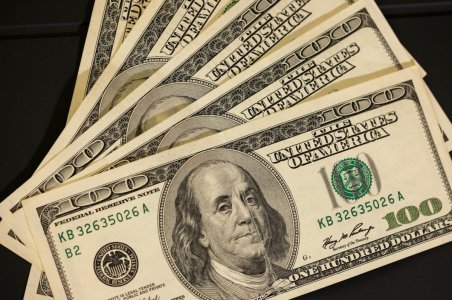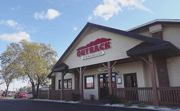You might receive $440 from this bank settlement—no forms required
By
Veronica E.
- Replies 0
If you’ve ever gotten a prerecorded call from a bank about an account that wasn’t yours, you’re not the only one—and it could actually lead to a payout.
Truist Bank, a major US financial institution, has agreed to a $4.1 million settlement to resolve claims over these automated calls.
Around 6,000 phone numbers are eligible, and affected individuals could receive a check for about $440.
Even better, there’s no need to file a claim form if you’re on the list.
However, there are key deadlines approaching, especially if you plan to opt out or object.

The issue stems from prerecorded calls allegedly made by Truist Bank to individuals who had no connection to the accounts being discussed.
That’s a potential violation of the Telephone Consumer Protection Act (TCPA), a federal law that protects people from unwanted robocalls.
While Truist has not admitted wrongdoing, the company agreed to the multi-million-dollar settlement to resolve the legal dispute without going to trial.
Truist was formed in 2019 when BB&T and SunTrust merged.
According to the complaint, some of the robocalls were placed to wrong numbers—triggering frustration, confusion, and potential privacy concerns for thousands of people.
If you received a prerecorded call from Truist Bank between February 10, 2019 and August 31, 2022 about a bank account that wasn’t yours, you may be eligible for compensation.
Approximately 5,998 phone numbers are included in the settlement, and if yours is one of them, you should have already received a notice in the mail or by email.
There’s no claim form to complete.
As long as your phone number is included in the list of affected individuals, your payment will be sent automatically—no action required unless you want to object or opt out.
Each eligible person is expected to receive around $440, though that amount may change slightly depending on legal fees or the final number of approved recipients.
The final court hearing to approve the settlement is scheduled for October 16, 2025, and checks are expected to be mailed by the end of the year.
So while you may not see that payment right away, it’s something to keep an eye out for toward the close of 2025.

If you’d rather not take part in the settlement—or if you want the option to pursue legal action on your own—you can opt out.
To do so, you must submit a request by September 8, 2025.
That’s also the deadline if you wish to formally object to the terms of the agreement.
Instructions for either option are available at the official settlement site: www.tbtcpasettlement.com.
Class actions allow people affected by the same corporate behavior to join together in a single lawsuit.
Instead of thousands of individuals filing separately, a few named plaintiffs represent the larger group, or “class.”
When a company chooses to settle, it often does so without admitting fault—but still provides compensation to affected individuals.
By accepting the payout, you typically agree to waive your right to sue the company again for the same issue.
That’s why deadlines and opt-out options are so important to consider.
The Truist Bank case is just one of several active class action settlements offering payments to consumers. Others include:
To check your eligibility, visit official settlement websites or use a trusted legal resource.
Whenever there’s talk of “free money,” scam artists are quick to act.
Be wary of emails or texts claiming you’ve won a settlement, especially if they ask for personal information.
The best way to verify a settlement’s legitimacy is to go directly to the official website listed in court documents.
Never pay money to claim a settlement.
Read next: You could be owed money from this $3.4 million privacy settlement—no receipts needed

If you’ve ever been surprised by a class action payment—or if you received one of those odd calls from Truist Bank—we’d love to hear your story. Have you spotted any fake settlement offers lately? Share your experience in the comments and help others stay safe (and maybe even get paid)!
Truist Bank, a major US financial institution, has agreed to a $4.1 million settlement to resolve claims over these automated calls.
Around 6,000 phone numbers are eligible, and affected individuals could receive a check for about $440.
Even better, there’s no need to file a claim form if you’re on the list.
However, there are key deadlines approaching, especially if you plan to opt out or object.

A recent class action settlement means some Truist Bank customers could receive a $440 check without filing a claim. Image Source: Pexels / Kampus Production.
Why is Truist sending out checks?
The issue stems from prerecorded calls allegedly made by Truist Bank to individuals who had no connection to the accounts being discussed.
That’s a potential violation of the Telephone Consumer Protection Act (TCPA), a federal law that protects people from unwanted robocalls.
While Truist has not admitted wrongdoing, the company agreed to the multi-million-dollar settlement to resolve the legal dispute without going to trial.
Truist was formed in 2019 when BB&T and SunTrust merged.
According to the complaint, some of the robocalls were placed to wrong numbers—triggering frustration, confusion, and potential privacy concerns for thousands of people.
Who qualifies for a $440 payment?
If you received a prerecorded call from Truist Bank between February 10, 2019 and August 31, 2022 about a bank account that wasn’t yours, you may be eligible for compensation.
Approximately 5,998 phone numbers are included in the settlement, and if yours is one of them, you should have already received a notice in the mail or by email.
There’s no claim form to complete.
As long as your phone number is included in the list of affected individuals, your payment will be sent automatically—no action required unless you want to object or opt out.
When will the payments arrive?
Each eligible person is expected to receive around $440, though that amount may change slightly depending on legal fees or the final number of approved recipients.
The final court hearing to approve the settlement is scheduled for October 16, 2025, and checks are expected to be mailed by the end of the year.
So while you may not see that payment right away, it’s something to keep an eye out for toward the close of 2025.

Thousands may be eligible for automatic payments following allegations of unauthorized prerecorded calls by Truist Bank. Image Source: Pexels / Engin Akyurt.
What if you don’t want the money?
If you’d rather not take part in the settlement—or if you want the option to pursue legal action on your own—you can opt out.
To do so, you must submit a request by September 8, 2025.
That’s also the deadline if you wish to formally object to the terms of the agreement.
Instructions for either option are available at the official settlement site: www.tbtcpasettlement.com.
A quick refresher on class action settlements
Class actions allow people affected by the same corporate behavior to join together in a single lawsuit.
Instead of thousands of individuals filing separately, a few named plaintiffs represent the larger group, or “class.”
When a company chooses to settle, it often does so without admitting fault—but still provides compensation to affected individuals.
By accepting the payout, you typically agree to waive your right to sue the company again for the same issue.
That’s why deadlines and opt-out options are so important to consider.
Other payouts you may be eligible for
The Truist Bank case is just one of several active class action settlements offering payments to consumers. Others include:
- GM vehicle owners may qualify for up to $875, depending on the model and issue involved.
- Soda drinkers could receive a share of an $8.9 million settlement related to misleading labels.
- Cash App users might be entitled to $147 if they used the platform during the covered period.
- Grocery shoppers may claim a reward for false advertising—with no receipt required.
To check your eligibility, visit official settlement websites or use a trusted legal resource.
Whenever there’s talk of “free money,” scam artists are quick to act.
Be wary of emails or texts claiming you’ve won a settlement, especially if they ask for personal information.
The best way to verify a settlement’s legitimacy is to go directly to the official website listed in court documents.
Never pay money to claim a settlement.
Read next: You could be owed money from this $3.4 million privacy settlement—no receipts needed
Key Takeaways
- Truist Bank has agreed to a $4.1 million settlement over alleged robocalls about unrelated accounts.
- Roughly 6,000 phone numbers are eligible for a payment of around $440, sent automatically—no claim form required.
- Those wishing to opt out or object must submit a request by September 8, 2025.
- The final approval hearing is scheduled for October 16, with payments expected by the end of 2025.
If you’ve ever been surprised by a class action payment—or if you received one of those odd calls from Truist Bank—we’d love to hear your story. Have you spotted any fake settlement offers lately? Share your experience in the comments and help others stay safe (and maybe even get paid)!






